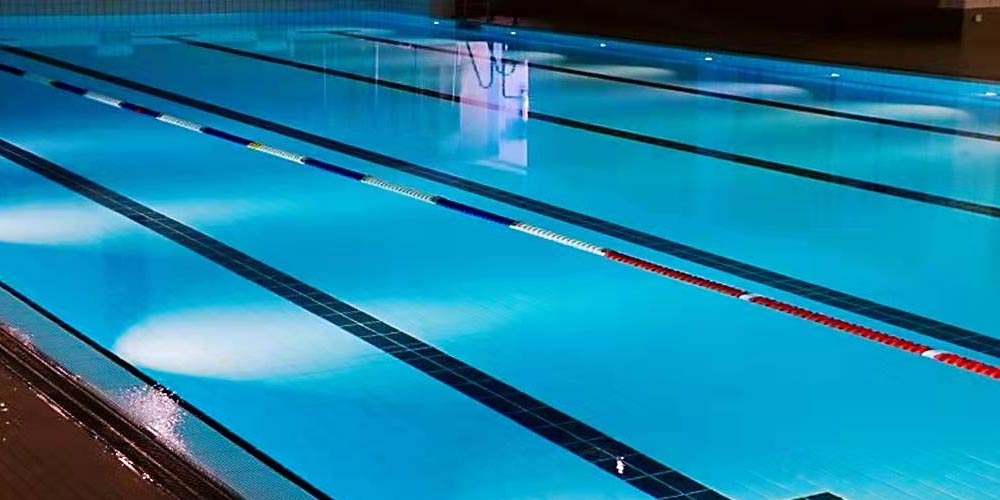AlgaecidesNdi mankhwala omwe amapangidwa makamaka kuti athetse kapena kuletsa kukula kwa algae m'madziwe osambira. Mphamvu yawo imakhala pakusokoneza njira zofunika kwambiri zamoyo mkati mwa algae, monga photosynthesis, kapena kuwononga kapangidwe ka maselo awo. Kawirikawiri, algaecides amagwira ntchito mogwirizana ndi mankhwala ophera tizilombo toyambitsa matenda okhala ndi chlorine kuti atsimikizire kuti madzi ndi abwino komanso omveka bwino.
Posankha algaecide, zinthu zingapo ziyenera kuganiziridwa, kuphatikizapo mtundu wa dziwe losambira, zoletsa bajeti, ndi mavuto omwe alipo pakali pano okhudza ubwino wa madzi. Algaecides zochokera ku mkuwa ndi zina mwa zomwe zimadziwika kwambiri, zomwe zimadziwika kuti zimagwira ntchito bwino polamulira algae. Komabe, ndikofunikira kudziwa kuti maiwe okhala ndi pH yokwera kapena mbiri ya utoto wachitsulo angafunike njira zina. Mwachitsanzo, quaternary ammonium algaecides, ngakhale kuti ndi yothandiza, ingapangitse thovu ngati sigwiritsidwa ntchito mwanzeru, zomwe zingawononge mafyuluta a dziwe.
Nthawi ndi Mlingo:
Kudziwa nthawi komanso kuchuluka kwa algaecide yoti mugwiritse ntchito ndikofunikira kwambiri kuti muchepetse bwino algae. Algaecides sikuti amangolimbana ndi algae yomwe ilipo komanso amagwira ntchito ngati njira yodziwira kukula kwa mtsogolo. Pambuyo pochiza matenda owopsa, omwe amathandiza kuchotsa zinthu zodetsa zachilengedwe, kuwonjezera algaecide ndikofunikira. Kugwiritsa ntchito mwanzeru kumeneku kumatsimikizira kuti algaecides ndi chlorine zimagwira ntchito mogwirizana kuti madzi azikhala bwino.
Kuonetsetsa kuti mulingo woyenera ndi wofunikira kwambiri kuti mupewe zotsatirapo zoyipa. Algaecide yambiri ingayambitse thovu, zomwe zingawononge makina osefera komanso kuyambitsa kuyabwa pakhungu ndi maso. Chifukwa chake, kutsatira mosamala malangizo a wopanga ndi kuyesa madzi nthawi zonse mukamaliza kugwiritsa ntchito ndikofunikira.
Kuphatikiza apo, kuganizira nthawi yogwirira ntchito ya dziwe losambira n'kofunika kwambiri. Algae imakula bwino m'malo amdima komanso osasunthika, zomwe zimapangitsa maiwe otsekedwa kukhala osavuta kugwidwa ndi matenda. Kuwonjezera algaecide panthawi yopuma kungalepheretse kukula kwa algae, ndikutsimikizira malo abwino osambira akatsegulidwanso.
Machenjezo ndi Njira Zabwino Kwambiri:
Ngakhale kuti algaecides imagwira ntchito yofunika kwambiri pakukonza dziwe losambira, kugwiritsa ntchito kwake kumafuna kuganiziridwa mosamala ndi kuyang'aniridwa. Kuyang'anira nthawi zonse momwe madzi amagwirira ntchito, kuphatikizapo kuchuluka kwa chlorine ndi pH, ndikofunikira kwambiri kuti tipewe kufalikira kwa algae. Kuphatikiza apo, kukhazikitsa njira yosamalira yonse, kuphatikizapo kusefa, kufalikira kwa madzi, ndi ukhondo, kungachepetse chiopsezo cha kuchuluka kwa algae.
Kuphatikiza apo, kuphatikiza njira zodzitetezera, monga kutsuka ndi kutsuka madzi nthawi zonse kuti muchotse zinyalala zachilengedwe, kumawonjezera kugwiritsa ntchito algaecide, kupititsa patsogolo kuyera bwino kwa madzi ndi kuyera. Kuphunzitsa ogwira ntchito m'dziwe losambira ndi ogwiritsa ntchito kufunika kwa ukhondo woyenera wa dziwe losambira komanso chitetezo cha mankhwala kumalimbitsa chikhalidwe cha udindo ndikuwonetsetsa kuti zomangamanga za dziwelo zikukhala nthawi yayitali.
Ma algaecides ndi ofunikira kwambirimankhwala a dziwe losambirapolimbana ndi kuchuluka kwa algae m'madziwe osambira. Mwa kumvetsetsa njira zawo zogwirira ntchito, kutsatira njira zabwino, komanso kugwiritsa ntchito mosamala, oyang'anira dziwe amatha kuteteza bwino madzi abwino ndikusunga ukhondo wa malo awo am'madzi. Kodi mukufuna kugula zina? Lumikizanani nafe!
Nthawi yotumizira: Juni-17-2024


